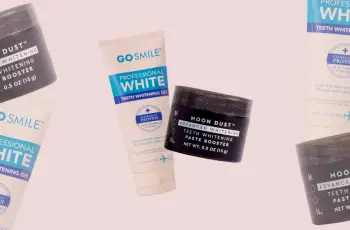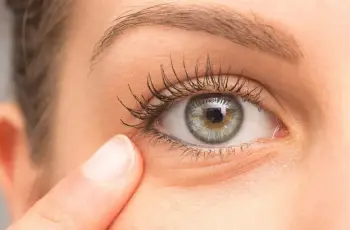
Can peptides and retinol go together?
Yes, there are some skincare ingredients that go well with strawberries and cream, but others are down to taste and require a little more consideration when using. Now the question is, can peptides and retinol go together? Is this the skincare combo you’ve been missing from your routine? Or will you end up with irritation? Let’s find out more together!
What is Retinol?
Retinol is a form of vitamin A that has a reputation as a highly effective skincare ingredient with a variety of skincare benefits. It increases the rate at which skin cells renew themselves, which means your complexion will look brighter and more youthful. You’ll also find it capable of fighting breakouts, whether they’re frequent pimples or occasional blemishes. Not to mention, the increase in cell turnover can also significantly improve all signs of hyperpigmentation and dark spots, giving you an overall even skin tone.
What are peptides?
Peptides are amino acids that form short chains in the lower layers of the skin. These ingredients are known for their bilingual nature and for communicating with cells. This basically means they can tell skin cells to increase collagen production. This strengthens the skin barrier and protects itself from damage caused by free radicals. Skin also appears plumper, smoother, and more youthful.
Can retinol and peptides be mixed?
Yes, you can! In fact, you’ll find that the combination of these ingredients brings an overall improvement. To get the most out of these two powerful ingredients, it’s best to use them both in your evening routine. This is because retinol is a photosensitive ingredient that becomes inoperable when exposed to UV rays. You’ll also find that peptides have antioxidant properties that effectively strengthen the skin barrier and fight signs of free radicals, such as pollution, UVA and UVB rays, and other environmental aggressors.
There’s nothing wrong with using these skincare products together. However, if you prefer to use both separately, start with peptides in your morning routine and follow up with retinol in the evening.
Which came first, peptides or retinol?
When using these powerful ingredients, it’s best to start with retinol. This allows the potent active ingredients of retinol to work, accelerating cell turnover and revealing brighter, healthier-looking skin. However, this also comes with the risk of irritation, dryness, and redness, which can be easily mitigated if you use a nourishing peptide-rich moisturizer.
However, for many skin types, using peptides and retinol together can be very beneficial. However, if you are prone to dryness and sensitivity, you should slowly introduce both ingredients into your routine. As with all ingredients in skincare, I also recommend consulting a doctor or dermatologist so you can be sure you are using the best options for your skin’s needs.
What Not to Use with Peptides?
There are very few skincare ingredients that can’t be used with peptides. To be most effective in your routine after introducing peptides, you should opt for formulas like serums and moisturizers, as they allow the peptides to stay on your face longer. You can also alternate with other ingredients you want to combine, such as vitamin C, niacinamide, hyaluronic acid, retinol, AHAs, and more.
Peptides work on the skin by penetrating the outer layer of the skin and easily reaching deeper areas of the skin. This makes it a convenient ingredient to incorporate into your daily routine and combine with other high-performance product formulas.
Which is Better, Peptides or Retinol?
Since each of these ingredients offers unique skin benefits when working on different areas of the skin, there is no reason not to use them together. In fact, they work perfectly together to improve the overall look and feel of the skin. As I mentioned before, if your skin type isn’t overly sensitive or prone to severe dryness, you will benefit from this potent skin combo.
If you want to learn more about peptides and retinol, as well as find out which one is better for you to incorporate into your daily routine, check out our dedicated blog post.
When should I use peptides?
The best way to incorporate peptides into your daily routine is to apply a serum to freshly cleansed skin before applying your moisturizer. Choosing a serum with active peptides ensures that your skin benefits without the potential side effects of dryness and irritation. If you apply your moisturizer afterwards, remember to be mindful of the active levels of irritating ingredients that may be present and irritate your skin. Skin irritation.
What are the benefits of peptides?
There are several reasons why peptides are beneficial for your skin. Here are some of the key benefits you can expect when using peptides in your daily routine.
Improves Skin Barrier
The protective skin barrier plays an important role in maintaining the health of your skin. As long as it contains the right amount of water and oil, it protects itself from harmful free radicals. These are caused by everyday aggressors like environmental pollution, cigarette smoke, UV rays, bacteria, and other pollutants. All of this can weaken the skin barrier, leading to signs of aging like fine lines and wrinkles, loss of elasticity, and dark spots with uneven skin tone.
Reduce Signs of Aging
With their ability to communicate with cells, peptides can tell skin cells to boost collagen production in the underlying layers of the skin. With collagen and elastin, the skin is supported by peptides (the building blocks of protein) for a firmer, younger, and smoother complexion.
Antioxidant Benefits
Peptides are rich in antioxidants that soothe inflammation, even out skin tone, and repair damaged skin while protecting it from further damage.
These are the answers to some of the questions we recently received about whether peptides and retinol can be used together. If you have any more questions, follow us on Instagram.


